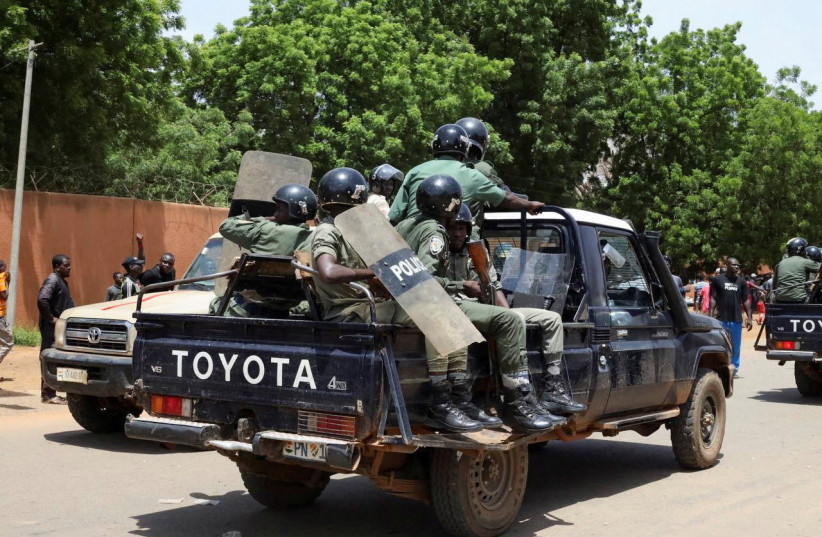Three key countries in the Sahel in Africa have formed a defensive pact, according to the military leader of Mali. It comes as France has said its ambassador is effectively under siege in Niger after a coup there. Coups have also affected Burkina Faso and Mali.
The interim transitional president of Mali, Goita Assimi, wrote online that “I signed today with the Heads of State of Burkina Faso and Niger the Liptako-Gourma Charter establishing the Alliance of Sahel States (AES) to establish an architecture of collective defense and assistance mutual for the benefit of our populations.”
In Niger, which has said it faces threats of a military operation by France and other African states, the French ambassador is said to be living off “military rations,” according to the French president.
"As we speak, we have an ambassador and diplomatic staff who are literally being held hostage in the French embassy…They are preventing food deliveries.” The ambassador has been under effective siege since the late July coup in Niger.
With other African states that are members of ECOWAS considering military operations, several states connected to Niger have rushed to pledge support, many of whom have had coups recently. The struggle now is afoot for the Sahel. Much media in the Gulf and the Middle East are paying close attention.

This is because the Sahel is in many ways an extension of the Middle East. It has historic ties to tribes that are linked to Sudan, which is itself in a civil war. In Sudan, the military has gained the upper hand diplomatically, but the tribal-based RSF that is challenging the military has deep influence.
Signaling to form an alliance
What we know is that Mali, Burkina Faso, and Niger signal that they are forming an alliance. Africa does not have many military alliances like this.
Historically, since independence, many African countries preferred policies of non-intervention in each other’s affairs, but that doesn’t mean everything was peaceful. There were major wars in Biafra and Katanga in Nigeria and the Congo respectively.
The Cold War played out in places like Angola. Rhodesia and South Africa fought against attempts to overthrow white minority rule. Idi Amin invaded Tanzania and was thrown out because of it. There was a genocide in Rwanda and its aftermath led to a massive war in Congo, where numerous countries participated. Jihadists have swept across the Sahel, destroying Somalia, and massacring people in Nigeria and many countries
Nevertheless, alliances like those the European states had before WWI, were not the norm in Africa. This Sahel alliance looks different. It’s not like ECOWAS or some other groupings. “Any attack on the sovereignty and territorial integrity of one or more contracted parties will be considered an aggression against the other parties,” the charter for the new Sahel grouping says, according to Al Jazeera.
Al-Mayadeen media, which is pro-Iran, has expressed interest in the new alliance. It predicts that ECOWAS will now “crack” and this is a setback apparently for the West, including France, the UK, and the US. This could affect Chad, Senegal, and the Ivory Coast, among other states.
Al-Ain media in the Gulf, which has run frequent articles about how the coups in the Sahel reflect a decline in French influence, has an article on the new alliance. It points out that the countries involved have small armed forces. Niger apparently can only field 20,000 soldiers, with only the equivalent of several regiments capable of real sustained fighting.
This is despite the investment that the US and France and others had in Niger to help its armed forces before the coup. These countries also have shortages of warplanes and other equipment. Nevertheless, they may have friends abroad, such as Iran, Russia, and China, which have interests in the region. The countries that they may need to oppose also have relatively weak militaries.
